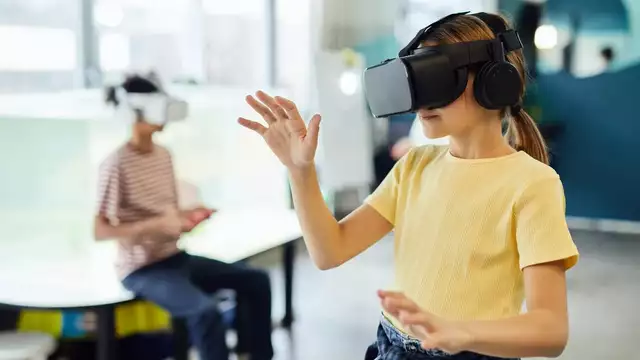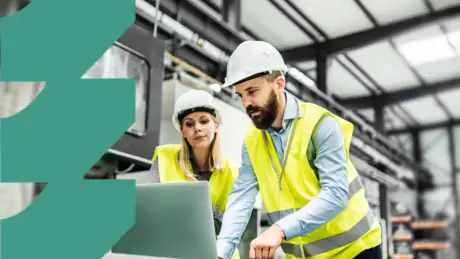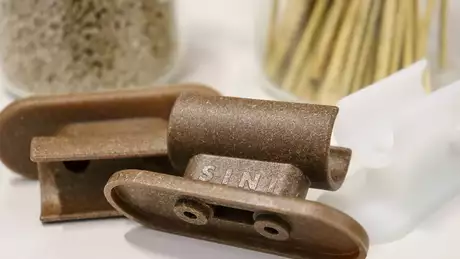
The International Museum Day of 2022 carries the slogan ”The Power of Museums”. One sub-theme is ”the power of innovating on digitalisation and accessibility”. And it is truly timely to ponder what this power is all about in relation to the digital.
The Covid-19 pandemic forced many museums to step up their game in the digital arena. Steep learning curves on all things digital have been witnessed in the race to provide services to visitors whose lives moved online. A state of exception, such as a pandemic can also be a bedrock of experimentation. The up side of this is a greater tolerance for failure because everyone has been forced to experiment and adapt. The downside – a need to learn rapidly in order to survive.
Since April 2021 Arcada University of Applied Sciences has conducted research, together with 12 other partners in the Horizon 2020 funded ReInherit project that will lay the basis for the development of a digital hub and a set of digital tools (prototypes, apps and training on tools) to be offered to museum professionals and museum visitors. Our specific focus is on the digital capacities and resources of small and medium sized museums.
First we interviewed museum professionals on what challenges they and the sector faces. We also wanted to know what type of support they need that we could provide through the ReInherit digital hub. Through questionnaires for visitors and professionals we asked about digital behaviour in a museum environment. Finally, in a second round of interviews we zoomed in on digital tools available in museums and ways in which they can be applied in museums and heritage sites. We were left with a wide range of insights and recommendations regarding collaboration between museums and cultural heritage sites, as well as useful and timely information on digitalization.
In the final focus group interviews both cultural heritage professionals and technical experts working in the cultural heritage field participated. It indicated how important it is to have opportunities to dialogue across sectors and to learn from each others’ perspectives and insights.
One important result from the interviews relates precisely to this. The museum sector needs stronger and more creative digital cultural partnerships functioning both within and across museums. Based on insights gleaned from our data, here are some key pointers to consider when embarking on the collaboration journey:
Firstly, you need to embrace a digital mindset within organisations. This can be achieved by having more online offerings, breaking up silos within organisations by having content producers work with technical experts and becoming more responsive towards the rapid changes that take place in society.
Secondly, transformation means not only an increase in digital literacy, but a change in work practices and organisational structures so that organisations create a common understanding and definition of the digital and its impact on the organisation. The digital needs to seep into all levels of the organisation. There needs to be clear documentation of digital processes within organisations as a means of knowledge sharing. Transparent communication builds trust between partners within and across organisations.
Thirdly, bring in an experimentation mindset. Organisational structures may need to be broken up and re-purposed to fit into a team working mode. This enables faster responses to societal needs and dialogues. It means working democratically and collaboratively towards common goals in agile teams. It also means working with a future oriented mindset so as to anticipate digitally related needs.
Fourthly, Share! Share your experiences of your digital journeys. What has worked? What has been challenging? Where do we want to go as teams, as organisations and as the whole sector? Share and pool your resources across organisations. Build digital tools together, build upon and and adapt already existing open source systems, employ experts that can serve several organisations at the same time.
When we in the ReInherit project move forward, through phases of development and iteration of our digital tools and hub, we need to keep some key values in mind to drive us forward. Following advice provided by UX expert Jared Spool, I believe these should be:
Create a strategy for passing on the products and ecosystem we have created once the project ends.
Re-use already existing apps, platforms and games and re-purpose them.
Share: make our tools readily available for others to use, build on and continue to develop.
Embracing an innovation and experimentation mindset within the ReInherit project means continuing to listen to and include museum professionals in our work. Hackathons and workshops will be organised to keep voices from the shop floor in the loop. You will be hearing more from us.
Text: Susanne Ådahl, Researcher, ReInherit project, Arcada
Photo: Pexels/Vanessa Loring


